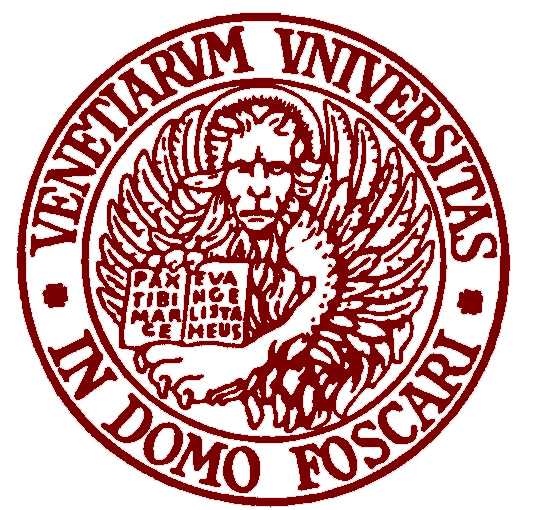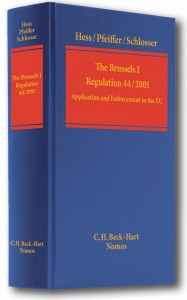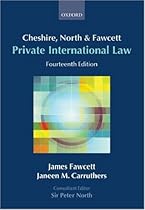The Stolzenberg case will also be litigated before the European Court of Justice! Last year, the Court of Appeal of Milan, Italy, referred two questions to the ECJ on the interpretation of the public policy clause of Article 27(1) of the 1968 Brussels Convention.
The ECJ was one of the few major courts in the western world which was missing in this judicial odyssey. It has now lasted for more than 15 years. And it is not over.
Part 1: Canada
The case began in the early 1990s with the collapse of an investment company incorporated in Montreal, Castor Holdings. A bankruptcy was opened in 1992 in Canada. It has been presented by many as the largest ($ 1.5 billion) and the longest bankruptcy in Canadian history.
 Essentially, the bankruptcy proceedings were about the auditors, Coopers & Lybrand (as they were then). In August 2008, the action against them was still pending. However, proceedings had also been initiated against the directors of the company for distributing $ 15.5 million of dividends in 1991, in the suspect period. Some of the directors settled with the bankruptcy, but five did not. In August 2008, the latter were eventually sentenced to pay $ 9.7 million. Among the five were the president of Castor, a German national named Stolzenberg, and a Swiss national named Gambazzi.
Essentially, the bankruptcy proceedings were about the auditors, Coopers & Lybrand (as they were then). In August 2008, the action against them was still pending. However, proceedings had also been initiated against the directors of the company for distributing $ 15.5 million of dividends in 1991, in the suspect period. Some of the directors settled with the bankruptcy, but five did not. In August 2008, the latter were eventually sentenced to pay $ 9.7 million. Among the five were the president of Castor, a German national named Stolzenberg, and a Swiss national named Gambazzi.
Part 2: England
Meanwhile, however, a small group of investors had brought proceedings before English courts. In 1996, Daimler Chrysler Canada and its pension fund, CIBC Mellon Trust Co., initiated proceedings against the directors and close to forty other corporate entities. They claimed that their loss in the Castor bankruptcy was the result of wrongful conduct by the directors, including Stolzenberg and Gambazzi.
A key issue in the litigation was the jurisdiction of English courts. None of the 40 defendants had any connection with England, except Stolzenberg, who had once owned a house in London, but, it seems, did not own it anymore when the proceedings were served on the defendants. The case went all the way up the House of Lords, which held in 2000 in Canada Trust Company v. Stolzenberg, Gambazzi and others that what mattered was whether there was one defendant who was domiciled in England when the claim was issued by the English court, not when it was served on the defendants (8 months later).
 Since the start of the English proceedings, the defendants had been subjected to a world wide Mareva injunction (now freezing order). As a result, they were under a variety of duties of disclosure that, they thought, were unacceptably far reaching. Some never appeared before English courts, but some did and complied for a while. At some point, however, they refused to provide any more information on their assets (which were situated abroad). They did not live in England, so there was not much the English court could do. But the Mareva injunction has been called one of the two nuclear weapons of English civil procedure. The English court pressed the nuclear button. Because they were not complying, the defendants were debarred from defending any action in England. This included the action on the merits. The English court then entered into a default judgment for close to € 400 million. There had been no trial, no assessment of the merits of the case. There was only a procedural sanction: you do not comply, your opponent will get whatever he asks for.
Since the start of the English proceedings, the defendants had been subjected to a world wide Mareva injunction (now freezing order). As a result, they were under a variety of duties of disclosure that, they thought, were unacceptably far reaching. Some never appeared before English courts, but some did and complied for a while. At some point, however, they refused to provide any more information on their assets (which were situated abroad). They did not live in England, so there was not much the English court could do. But the Mareva injunction has been called one of the two nuclear weapons of English civil procedure. The English court pressed the nuclear button. Because they were not complying, the defendants were debarred from defending any action in England. This included the action on the merits. The English court then entered into a default judgment for close to € 400 million. There had been no trial, no assessment of the merits of the case. There was only a procedural sanction: you do not comply, your opponent will get whatever he asks for.
The Stolzenberg litigation entered into a new stage. It was not anymore about what had happened in Canada. It was about whether such a default judgment could be enforced abroad, where the defendants had assets.
Part 3: Germany
Stolzenberg had fled England early on. He was then, and is still now, believed to be living in Germany. Enforcement proceedings were initiated there, but I do not know much about them.
Part 4: New York
 One of the corporate defendants in the English proceedings owned a hotel in mid-town Manhattan. In May 2000, enforcement proceedings of the English judgment were initiated in New York. Eventually, the matter came before the New York Court of Appeals (that is, I understand, the supreme court of the state of New York).
One of the corporate defendants in the English proceedings owned a hotel in mid-town Manhattan. In May 2000, enforcement proceedings of the English judgment were initiated in New York. Eventually, the matter came before the New York Court of Appeals (that is, I understand, the supreme court of the state of New York).
In a judgment of May 8, 2003, the Court confirmed that the judgment could be recognised in New York. It held that the English judgment was not incompatible with the requirements of due process of law. Indeed, the court endorsed previous statement of American courts saying that “[c]onsidering that our own jurisprudence is based on England’s, a defendant sued on an English judgment will rarely be in a position to defeat it with such a showing“, and “any suggestion that [England’s] system of courts ‘does not provide impartial tribunals or procedures compatible with the requirements of due process of law’ borders on the risible“.
Not only the Queen, but also the English, can do no wrong.
Part 5: France
Stolzenberg had some assets in Paris. Enforcement proceedings were thus initiated in France. In a judgment of 30 June 2004, the French Supreme Court for Private and Criminal Matters (Cour de cassation) confirmed the enforceability in France of both the Mareva injunction and the English default judgment. Although Stolzenberg’s lawyers raised the issue of the compatibility of the judgement with French public policy, they did not insist on the fact that the default judgment was obtained as a consequence of the unwillingness of the defendants to comply with the Mareva injunction. The judgement of the Cour de cassation is thus silent on the issue.
Part 6: Switzerland
A Swiss lawyer, Gambazzi had obviously assets in his home country. Enforcement proceedings were initiated there as well. But it was reported that, unlike American and French courts, Swiss courts found that the English judgments were a breach of process and thus denied recognition. More precisely, according to the same report, the Swiss Federal Court would have ruled twice on the case in 2004, as enforcement had been sought against the Swiss assets of two former directors of Castor (Gambazzi and Banziger) in two different Swiss cantons, and would only have denied recognition for the purpose of enforcement against Gambazzi’s assets.
Part 7: Strasbourg
Of course, from the perspective of the defendants, this seemed like a perfect case for the European Court of Human Rights. Are nuclear weapons compliant with Article 6 and the right to a fair trial? This really looks like a good question to ask the Strasbourg court. So, in the early 2000s, some of the defendants to the English proceedings brought an action against the United Kingdom, arguing, inter alia, that being debarred from defending did not comply with Article 6 of the Convention.
Quite remarkably, the action was declared inadmissible by the ECHR at the earliest stage, as “manifestly ill-founded”. The Court did not give any reasons for this decision, which is noteworthy when one knows that the court considers that judgments lacking reasons do not comport with the right to a fair trial.
The defendants would have to wait for another opportunity to have their day in (a European) court.
Part 8: Italy
It seems that Gambazzi also had assets in Italy, as enforcement proceedings were also initiated in Milan. His lawyers challenged the enforceability of the English judgment, arguing that it was contrary to Italian public policy. As the 1968 Brussels Convention governed the enforcement of such judgement, they relied on the public policy clause of Article 27. On 22 August 2007, the Court of Appeal of Milan decided to refer two questions of interpretation of Article 27 to the European Court of Justice.
Part 9: Luxembourg
And here we are now in Luxembourg.
The Court of Milan referred the two following questions (Case C 394/07):
1. On the basis of the public-policy clause in Article 27(1) of the Brussels Convention, may the court of the State requested to enforce a judgment take account of the fact that the court of the State which handed down that judgment denied the unsuccessful party the opportunity to present any form of defence following the issue of a debarring order as described [in the grounds of the present Order]?
2. Or does the interpretation of that provision in conjunction with the principles to be inferred from Article 26 et seq. of the Convention, concerning the mutual recognition and enforcement of judgments within the Community, preclude the national court from finding that civil proceedings in which a party has been prevented from exercising the rights of the defence, on grounds of a debarring order issued by the court because of that party’s failure to comply with a court injunction, are contrary to public policy within the meaning of Article 27(1)?
So it seems that (some of) the defendants might eventually have their day in a European court.
 Essentially, the bankruptcy proceedings were about the auditors, Coopers & Lybrand (as they were then). In August 2008, the action against them was still pending. However, proceedings had also been initiated against the directors of the company for distributing $ 15.5 million of dividends in 1991, in the suspect period. Some of the directors settled with the bankruptcy, but five did not. In August 2008, the latter were eventually sentenced to pay $ 9.7 million. Among the five were the president of Castor, a German national named Stolzenberg, and a Swiss national named Gambazzi.
Essentially, the bankruptcy proceedings were about the auditors, Coopers & Lybrand (as they were then). In August 2008, the action against them was still pending. However, proceedings had also been initiated against the directors of the company for distributing $ 15.5 million of dividends in 1991, in the suspect period. Some of the directors settled with the bankruptcy, but five did not. In August 2008, the latter were eventually sentenced to pay $ 9.7 million. Among the five were the president of Castor, a German national named Stolzenberg, and a Swiss national named Gambazzi.  Since the start of the English proceedings, the defendants had been subjected to a world wide Mareva injunction (now freezing order). As a result, they were under a variety of duties of disclosure that, they thought, were unacceptably far reaching. Some never appeared before English courts, but some did and complied for a while. At some point, however, they refused to provide any more information on their assets (which were situated abroad). They did not live in England, so there was not much the English court could do. But the Mareva injunction has been called one of the two nuclear weapons of English civil procedure. The English court pressed the nuclear button. Because they were not complying, the defendants were debarred from defending any action in England. This included the action on the merits. The English court then entered into a default judgment for close to € 400 million. There had been no trial, no assessment of the merits of the case. There was only a procedural sanction: you do not comply, your opponent will get whatever he asks for.
Since the start of the English proceedings, the defendants had been subjected to a world wide Mareva injunction (now freezing order). As a result, they were under a variety of duties of disclosure that, they thought, were unacceptably far reaching. Some never appeared before English courts, but some did and complied for a while. At some point, however, they refused to provide any more information on their assets (which were situated abroad). They did not live in England, so there was not much the English court could do. But the Mareva injunction has been called one of the two nuclear weapons of English civil procedure. The English court pressed the nuclear button. Because they were not complying, the defendants were debarred from defending any action in England. This included the action on the merits. The English court then entered into a default judgment for close to € 400 million. There had been no trial, no assessment of the merits of the case. There was only a procedural sanction: you do not comply, your opponent will get whatever he asks for. One of the corporate defendants in the English proceedings owned a hotel in mid-town Manhattan. In May 2000, enforcement proceedings of the English judgment were initiated in New York. Eventually, the matter came before the New York Court of Appeals (that is, I understand, the supreme court of the state of New York).
One of the corporate defendants in the English proceedings owned a hotel in mid-town Manhattan. In May 2000, enforcement proceedings of the English judgment were initiated in New York. Eventually, the matter came before the New York Court of Appeals (that is, I understand, the supreme court of the state of New York).
 The French Supreme Court for Private and Criminal Matters (Cour de cassation) handled an interesting decision earlier this year on lis pendens under Regulation 2201/2003 of 27 November 2003 (Brussels IIbis).
The French Supreme Court for Private and Criminal Matters (Cour de cassation) handled an interesting decision earlier this year on lis pendens under Regulation 2201/2003 of 27 November 2003 (Brussels IIbis).

